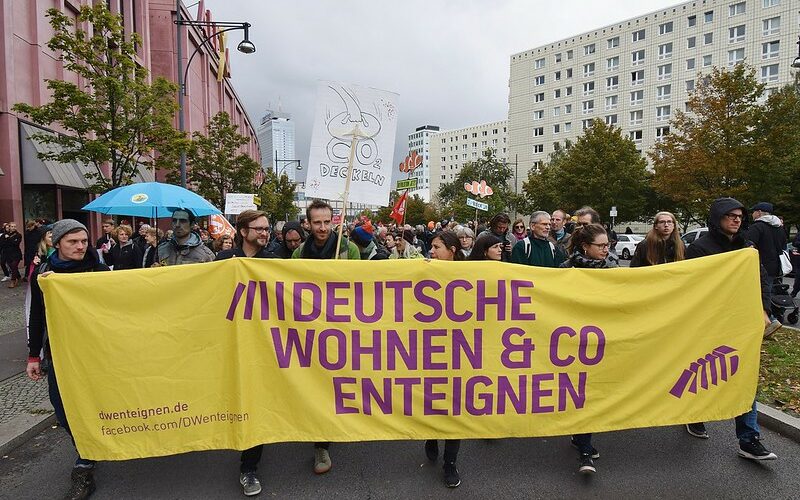Voters in Berlin have voted to expropriate large institutional landlords in a non-binding referendum that shows the fury Berliners have with rising rents and falling conditions.
As part of the “Deutsche Wohnen & Co. enteignen” campaign, which targeted Deutsche Wohnen, a company listed on the stock exchange, and other international investment firms that own more than three thousand apartments in the city, Berliners have given a clear signal that the housing “market” is not functioning.
However, the situation is more complicated than it seems. Firstly, the only political party that explicitly supported the measure, Die Linke, had its share of the vote fall. The Social-Democratic Party (SPD) and the Green Party now have the numbers to form a coalition without their junior partner, and the SPD’s mayoral candidate, Franziska Giffey, is outspoken in her opposition to the expropriation measure.
A similar referendum to ban housing development on the former airport Templehofer Feld, now a large public park, has been continually pushed back against, with the latest plan to build thousands of luxury flats on the south end of the field getting widespread support from the political elite.
So, despite the strong vote for the expropriation measure (59 per cent), the battle to make the vote a reality is only beginning, and it will require concerted pressure from the campaign alliance to make sure it is implemented.
However, the real question is a supply issue. Democratising part of the existing market is a step, but it is only a foundational step to prepare the ground for a wider class struggle. There needs to be a significant acceleration in building to ensure that the supply of public housing meets need. And while the victory on this single issue shows that there is an appetite in Berlin for confrontation with international investment, the balance of forces is not yet there for a fully class-conscious opposition to the real problem: the capitalist system.
Header image from https://www.flickr.com/photos/uwehiksch/48925090956






